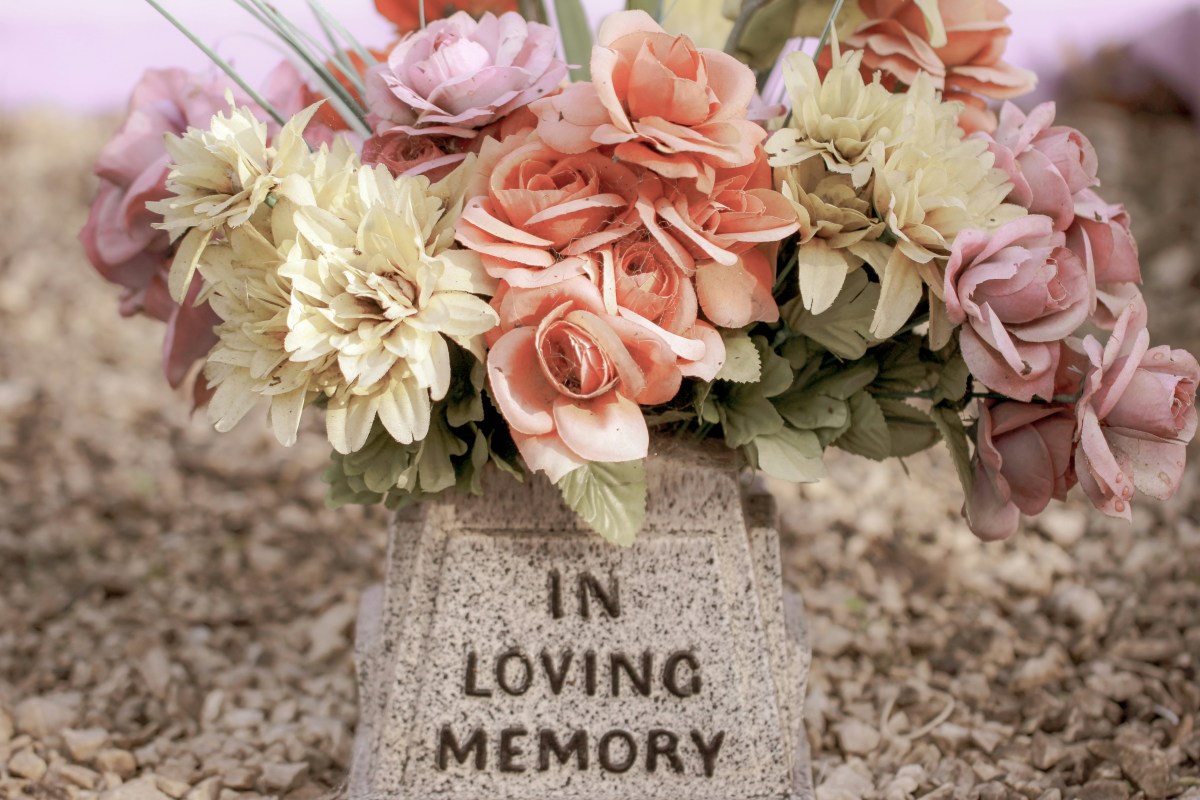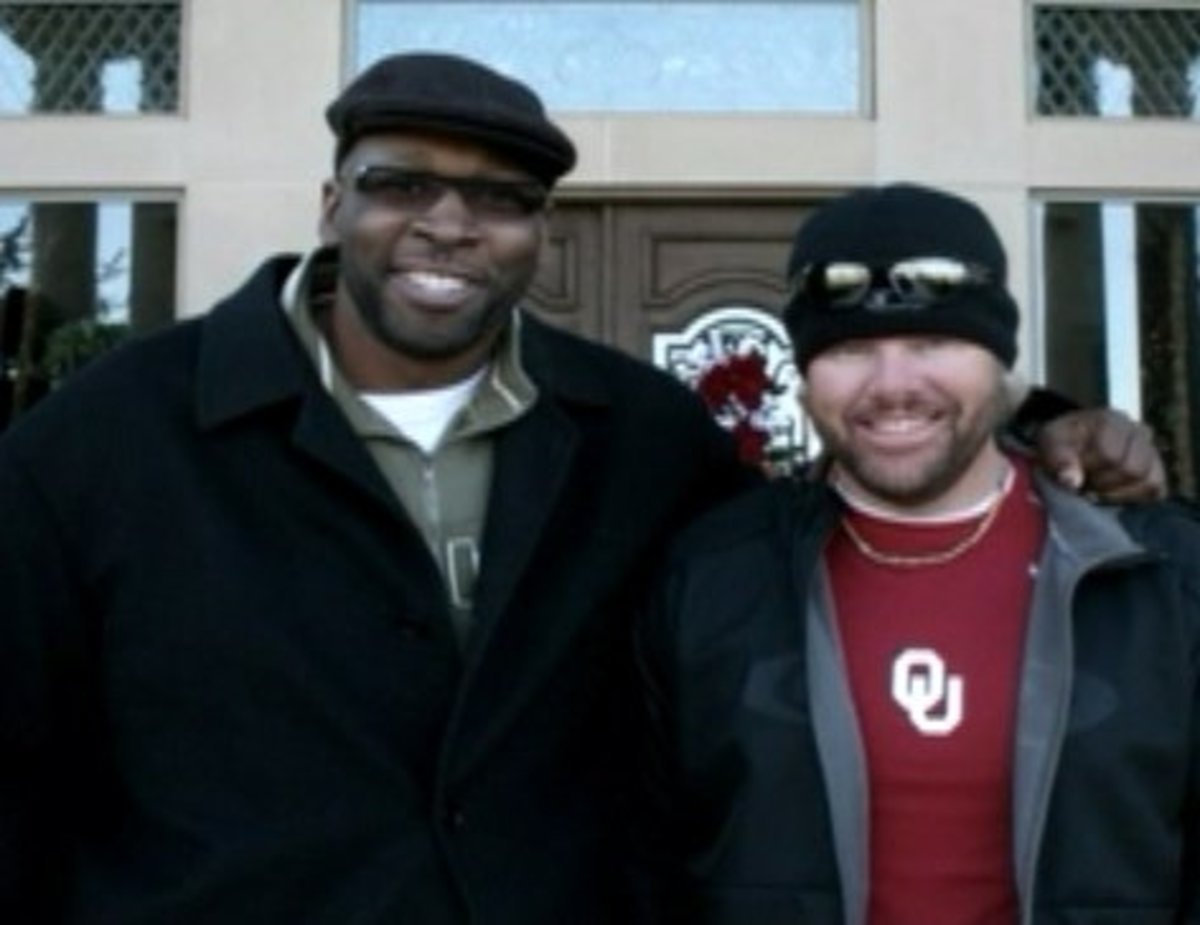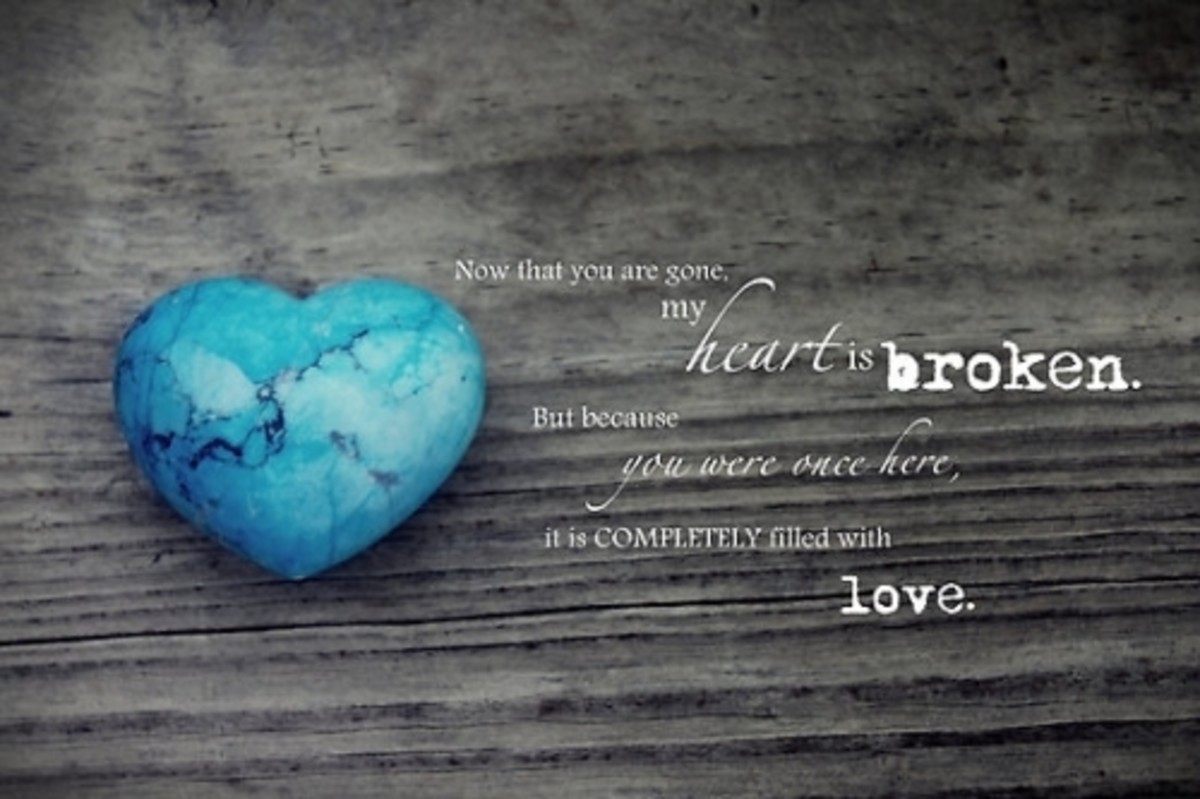Allowing Grief To Do Its Work
It's okay to cry when things go wrong and something has silenced the earthly song of friends or relatives, loved ones dear, and everything that we hold so near.*

Take Time to Grieve
Grief does not resolve itself quickly. We experience a wide range of feelings and thoughts. Our natural inclination is to push against them or try to get rid of them. The power of these feelings makes them unpleasant, and we are not sure how to deal with them.
We have memories that elicit happiness and joy one moment, and the next we are filled with sadness and despair. The roller coaster effect of grief makes everyday life difficult and unpredictable. We do things we never thought we would, or blunder through mistakes that just don't make sense, given our training and experience. At times like these, it is easy to get down, thinking that we need to get over it and get on with life.
Unfortunately, this only exacerbates the problem. The following paragraphs contain suggestions for allowing grief to do its work. When these emotions well up inside us, rather than fighting against them, we can acknowledge the rising waves, climb on our surfboard, and go for a ride! Doing so allows grief to do its work, and us to have a more scenic point of view.
It's okay to feel the sadness deep and seek some solace, emotional relief, to be with others who seem to know our feelings and help our grief let go.

The Tears Will Come
Crying is a gut-wrenching experience! The body heaves out emotion as the tears gush from our eyes and the mucous is blown from our nose. There is no pretty way for it to happen, we just have to find a private place and let go!
According to the article, "Three Benefits of Crying" (Link), crying relieves stress. Grief is considerable stress, and the best release for it is in the tears that we cry. Just as with other forms of stress, grief nags at us, pushing our feelings of self-worth into a corner, threatening to take away the very foundation of our lives.
It gives us hope and a feeling of peace when empathy and love around us increase. It's okay, too, when we do receive for it lets us know that others believe.
The Benefits of Crying
The second benefit of crying noted in the article is that of improved communication. We usually cry when our grief is at its most poignant, and that is the time when we need assistance. Allowing ourselves to cry helps others realize we need extra love and attention.
Once we are past the initial stage of grief, crying tends to become more private. We shed tears when we remember the sweetness of a past relationship, are reminded of something special that was done, or experience the anniversary of a shared holiday. As we savor these remembrances, we enjoy them for what they are, sweet morsels of mercy and grace, oases to our parched souls.
Crying enables the stress to be released in such a way that we feel a heightened sense of well-being. Just as opening the floodgates takes the pressure off of an overfilled reservoir of water, crying relieves the pent-up emotions that are jumbled together from our grief, making room for the receipt of positive feelings.
It's okay to sigh and relax for a time when energy is zapped by such feelings sublime, when emotions and pain have taken their toll with those that are missing from the roster or roll.

Relax and Rest
Grief saps our energy, leaving us feeling wasted, washed out, and exhausted. We feel like not doing much of anything. It is okay to relax and rest, allowing our bodies to rejuvenate. This is especially true if we have been integrally involved with the final activities of the recently departed.
How can we know if fatigue is an issue? Check for the following:
- Dropping things.
- Tripping and falling over nothing.
- Forgetting scheduled activities.
- Losing track of personal affects.
- Not caring about the needs of others.
All of these indicate that our personal needs are not met and we are running on empty. It is time for some recreation; not necessarily in the form of sports and physical activity, but in the form of a distraction, allowing the body the opportunity to recuperate. Different types of recreation provide different benefits. These are explained below:
It's okay to dream of a time and a place where there is a wonderful human race and bad things don't happen and people are kind, with tragedy the farthest thing from our mind.
Examples of Rest and Rejuvenation
Take a trip - get away from the current surroundings and see some new scenery. Stay at the home of a relative, find a secluded camp site, or just go for a drive to a neighboring town for a fresh outlook on life. The more novel the experience, the less likely we are to feel down and out. Things may not change much at home, but we will come back with a better perspective.
Try a new hobby or craft - do something out of the ordinary to give the brain a much needed break. The newness of the activity provides stimulation of feel good hormones and the senses time to focus on something different. Life will continue on, and we may find the new hobby is something we want to continue in the future.
Attend a live performance - a live musical or theatrical performance allows our emotional roller coaster to change gears for a while. We find ourselves in the middle of someone else's story and, for a few moments, see life from a different vantage point. As the curtain falls on the performance, our perspective has lightened, and we are ready to go back to our own lives.
Take a walk in nature - walking outdoors lifts the spirit. The sights, smells, and sounds of a walk in the park remind us that life goes on, that other parts of the world are not interrupted by our grief. It gives hope that normalcy will once again be established, and that the sun will come up tomorrow.
It's okay to fly on the wings of a prayer and pretend that the tragedy just isn’t there, to laugh and to sing over stories and jokes, and be just like other ordinary folks.

Let the Memories Come
Memories from the past come readily when we are grieving. It is as if we are rewinding our lives in an effort to find something to steady ourselves as our foundations are rocked by the earthquake of our grief. We turn back the clock, groping for a sense of stability and strength.
Memories bring with them sights, smells, sounds, and feelings that can be overwhelming. Writing about them makes sense of our lives and gives us material for future reflection. Now is a good time to write memoirs and histories or go through memorabilia that we have stored in our closets and drawers.
It's okay to turn back the time machine then and remember the time before tragedy began, to look at our life as if in a play, and wish that things were still that way.
Reconnect With the Past
Grief changes our world view. In order to find our future, we reconnect with our past. The bridge between the two is the event that brought our grief to the forefront. Reviewing our past allows us to pick and choose from what we used to be and lay it as the foundation for what we will become.
The pain of our grief may bring skeletons from our past onto the stage of our memory. When this happens, our response will determine the tenure of their stay. If we forgive and move on, they will be only temporary house guests. If we dwell on them, they whirlpool around us, pulling us downward. Assistance from family, friends, and perhaps even medical professionals aids in their eviction.
Should we feel a tug from our conscious to revisit actual places from our past, caution is advised. Others have not experienced the same things we have. People and places change and may not be how we remember them. Keeping this in mind, it may be better to reminisce from a distance, allowing our memories of past experiences to be a sufficient smorgasbord for the nourishment needed.
It's okay to buy a card or a gift, for it will surely some spirit uplift, it calms the heart and clears the head when we see others know of our terrible dread.

Find Someone to Help
As we find resolution to our grief, there are naturally feelings of emptiness. We miss the life we have left behind and are not sure what lies in the future. This time of transition is also one of introspection. Grief, by nature, is focused inward: on our pain, our loss, and our feelings of loneliness.
Now is the time to find someone to help. There is much pain and heartache in this world, and all we need do is look around us. Every family, neighborhood, and community has causes to champion, people who need a friend, and something that we can do.
It's okay to cry the tears of joy with every man, woman, girl and boy, that come of peace and hope and love, the comfort and solace that come from above when we have established a common bond that gives us courage and faith beyond that which normally is the fair before the tragedy brought it to bear.
Champion a Cause
Some people use their grief as an opportunity to teach better living skills with their own lives as an example. Others work to enact legislation, bringing attention to laws that were not working in their favor during their own tragedy. No matter what we do, our efforts will bring meaning and purpose into our lives, and perhaps the lives of others.
Ultimately, our objective is to make the world a better place. The sooner we use our difficulty to make something positive in the world, the sooner we will find peace and happiness in our own humanity. Life is precious and we have been spared for a reason. Either we take our second chance at life seriously, and make something of it, or dwell on our loss and remain in misery.
Our efforts will not always be met with a positive result, and that does not matter. We know how others feel when they are in pain, and anything we do to help alleviate that pain is a step in a positive direction. Whether it is a simple card, a phone call, or a visit, we make a difference to others, and as a result, to ourselves.

How is your grief surf-board ride?
Grieving is the process of changing, of moving from life with to life without, and yet, in the process, somehow, we no longer see ourselves from the point of view of our loss, but rather, by what we have gained. The compassion, mercy, grace, and love that fill our hearts as a result of what we experienced come in no other way.
Just like a forest is renewed through the process of being blackened and charred, our lives only have meaning and purpose when we have experienced difficulty and pain. We appreciate the good times, and the seedlings that were lying dormant in our souls are released for us to realize our full potential.
Grief is a refining process whereby we look at who we have been and make decisions of who we want to be in the future. As we do so, we are allowing grief to do its work.
*Poem "It's Okay to Cry" by Denise W. Anderson.
This content is accurate and true to the best of the author’s knowledge and is not meant to substitute for formal and individualized advice from a qualified professional.
© 2014 Denise W Anderson








